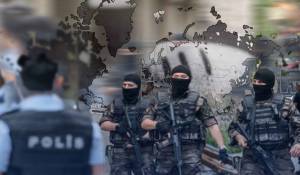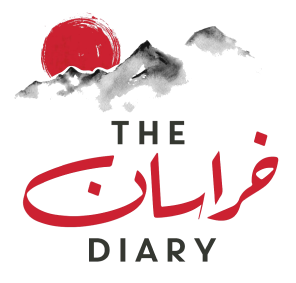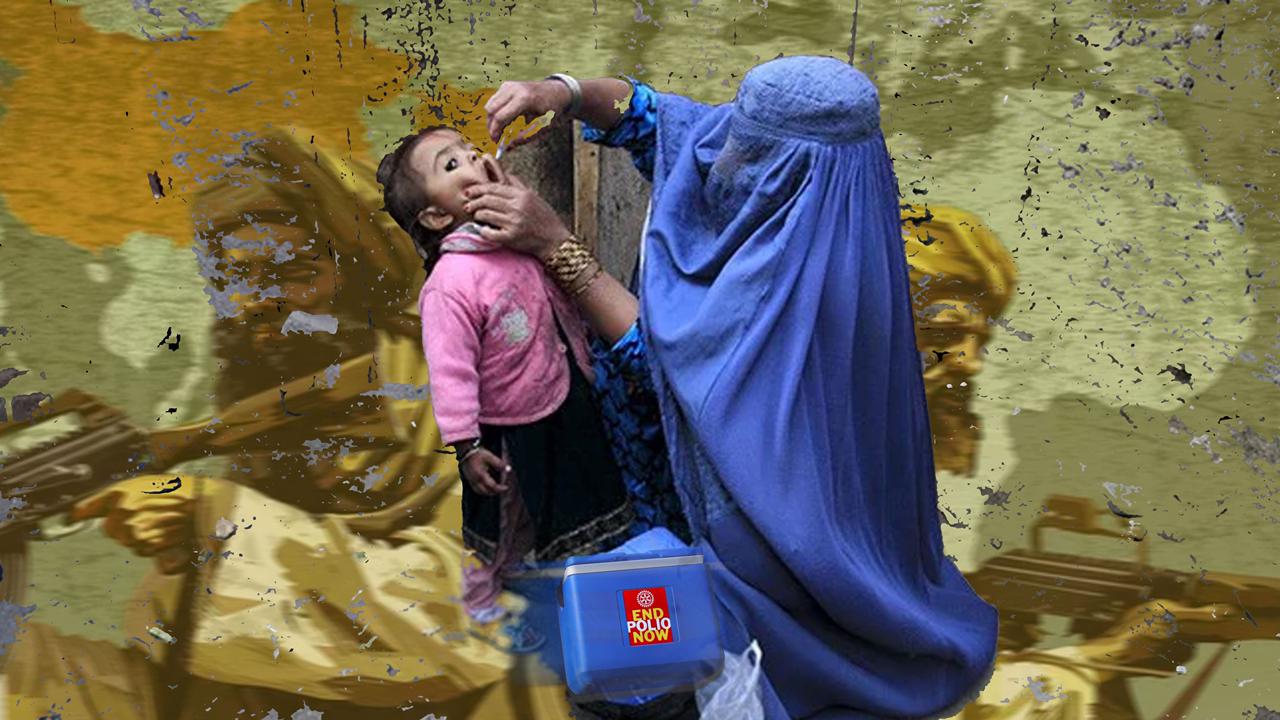Despite decades of global efforts, Polio continues to remain a hazardous health challenge and casts a vast shadow over the public health landscape in Pakistan. On the 14th of January 2025, the Regional Reference Laboratory for Polio Eradication at the National Institute of Health, Islamabad confirmed the detection of latest wild poliovirus type 1 (WPV1) in a male child from Jacobabad, Sindh province, placing the number at 71.
With a surge in the reported cases during the previous year, Pakistan will be responding to the resurgence of WPV1 this year too. Of these, 27 are from Balochistan, 21 from Khyber Pakhtunkhwa, 21 from Sindh, and one from Punjab and Islamabad.
While in Balochistan, Qilla Abdullah has become a hotspot, accounting for seven cases. The virus's persistence raises concerns about the effectiveness of eradication efforts in the area and two other cases reported in the provincial capital Quetta. The Pakhtun dominated areas of the province also saw a gradual increase in polio cases, and that is what the NIH latest data show.
Prime Minister Shehbaz Sharif started the third national polio eradication campaign of the year on World Polio Day, October 27th, 2024. During the campaign, Prime Minister Sharif stressed the importance of tackling polio urgently, highlighting that it is a shared responsibility to make Pakistan a polio-free nation.
Persistent Militant Threats
Despite years of efforts and substantial resources invested in eradication campaigns, the disease continues to resurface due to a combination of logistical hurdles, security threats, widespread misinformation and corruption. These issues have created a complex environment, making the eradication of polio an ongoing struggle. Firstly, reaching a child in Pakistan is still a major factor and a hurdle in immunization. The tribal regions, particularly in Khyber Pakhtunkhwa and Balochistan, are characterized by security threats that the Polio workers face from the militant outfits, becoming direct victims of their attacks.
On September 23, 2024, two anti-polio vaccinators were kidnapped by armed men in Kulachi, Dera Ismail Khan District, Khyber Pakhtunkhwa around midday. They were later released on the condition that they would no longer take part in the vaccination drive in the area.
Likewise, on Sep 11, 2024, a polio team was attacked by unidentified assailants in tehsil Salarzai, District Bajaur, Khyber Pakhtunkhwa, resulting in the death of one while another got injured.
Data available with The Khorasan Diary shows that in a series of violent incidents targeting polio vaccination efforts in Pakistan, there have been 33 attacks resulting in 27 deaths and 77 injuries in 2024. Among the casualties, seven polio workers were injured, with one killed in Salarzai and another slaughtered in the Bhittani area of Lakki Marwat District. Similarly, two other incidents involved the kidnapping of polio workers in North Waziristan and Dera Ismail Khan district, although they were later released. The attacks have also claimed the lives of 17 security personnel.
Khyber Pakhtunkhwa has experienced a total of 30 attacks, resulting in the deaths of 19 individuals, including two polio frontliners, as well as sixteen security personnel. The region of Dera Ismail Khan has been particularly hard hit, with at least five reported attacks. Both Bannu and Bajaur have also faced significant violence, each seeing three attacks.
The Tehreek-e-Taliban Pakistan (TTP), when contacted by The Khorasan Diary for comments, claimed that their target is not the Polio teams themselves but rather the security personnel guarding them.
"We have no problem with Polio teams, but we have asked the polio control authorities to first talk to us before carrying out vaccination drives in areas where TTP is present," said Muhammad Khorasani, spokesman for the banned TTP over the phone. "If they want to run a polio campaign in the areas where our people are present, they should talk to us first to discuss the conditions for an agreement. They will be allowed to operate then," he added.
Baloch armed groups in Pakistan are typically viewed as secular outfits, in contrast to Islamist factions. On 29 October, in the Kadkucha area in Mastung, armed persons seized two rifles from Levies personnel tasked with protecting a polio vaccination team. The Balochistan Liberation Front (BLF) later claimed responsibility for this incident.
Abdul Basit, Special Secretary Health and Provincial Coordinator Emergency Operations Centre of Khyber Pakhtunkhwa province said that “Polio eradication is a national emergency led by the Federal Government and executed by the Provincial Governments”, whereas in this process the “Law Enforcement Agencies (LEAs) are providing security support to polio eradication efforts of the Government”.
Though, it was reported in a few cases that the victims of Polio were brought from Afghanistan to Pakistan. However, according to Abdul Basit, “Vaccination teams are deployed on every crossing points” due to which all incoming population, including children, are vaccinated at these crossing points. As a result, this removes the misconception tied to Polio virus that it is largely brought from Afghanistan.
Therefore, the security challenges have worsened the situation, placing the LEAs in a dilemma. Militants often target polio workers and their police escorts, creating a climate of fear that hampers vaccination drives. Since 2012, around 112 health workers and their escorts have been killed and more than 300 people suffered injuries in Khyber Pakhtunkhwa province alone. These attacks often involve assailants on motorcycles who target health teams and then flee. As a result, some health workers, fearing for their lives, succumbed to community pressure to falsely document children as vaccinated without administering the polio drops, also called as fake finger marking. “LEAs support is exemplary in southern Khyber Pakhtunkhwa. Special security measures are taken to access all areas” stated Abdul Basit.
Struggles on the Frontlines: Rape, Police Protests, and Paramedic Strikes during Anti-Polio Drive
In September 2024 Bajaur District police, Khyber Pakhtunkhwa announced boycotting duties for Anti-Polio Campaigns because of police consistently being targeted and killed while protecting polio eradicating teams. Police personnels from at least three Southern Districts of Khyber Pakhtunkhwa also protested for similar reasons during anti-polio drive.
On December 16, the Grand Health Alliance (GHA), an umbrella organization of health bodies, in Balochistan province announced a provincial-level boycott of the anti-polio drive. A GHA representative, speaking anonymously, criticized the presence of Deputy Commissioners (DCs) and Commissioners in overseeing the anti-polio campaign, arguing that they lack the necessary ability to manage this public health issue. The representative further accused of “incompetence and corruption, claiming that such factors contributed to the ongoing spread of polio.” He demanded that the polio eradication program be managed by district health officers, who are considered more qualified for this responsibility.
Impact of Misinformation on Polio Vaccination Efforts
Moreover, misinformation and mistrust surrounding the polio vaccine present added hurdles. Conspiracy theories, including claims that the vaccine is harmful or part of a Western agenda, and makes a male impotent remain widespread. Past incidents, such as the fake vaccination campaign to find Osama bin Laden, have further eroded public trust. Misinterpretations of religious teachings and cultural resistance to vaccination also play a significant role in fueling vaccine hesitancy. As a result, people are largely reluctant to immunize their children against Polio.
Some clerics claim that polio vaccines have pork or hormonal substances, fueling mistrust. Influential clerics' endorsements of vaccination efforts have helped mitigate this issue. Therefore, a team member of the World Health Organization (WHO), working on polio eradication on condition of anonymity, told The Khorasan Diary that “collaborating with religious leaders and local stakeholders is key to polio eradication. We're building trust and promoting vaccine awareness to protect our future from this crippling disease.
Whereas other misconceptions and propagandas include thoughts like ‘Vaccines are a Western plot to control population’ exist in society.
Along with that, the bureaucratic inefficiencies and programmatic issues have hindered progress as well. Delays in vaccine distribution, lack of coordination among government departments, insufficient training for health workers, and weak monitoring systems undermine the effectiveness of vaccination campaigns. Corruption and resource shortages, such as inadequate funding for police escorts who provide security to vaccination teams, further complicated the eradication efforts.
The situation is still dire in Khyber Pakhtunkhwa, where health workers work under life-threatening conditions. Despite compensation packages for families of those killed, the ongoing violence not only endangers lives but also undermines the integrity of vaccination records. Cases of fraudulent fingers are becoming increasingly common, complicating efforts to track and eradicate the virus effectively.
Pakistan has responded to the resurgence of polio with the National Emergency Action Plan for Polio 2024-25. However, addressing this crisis requires a multifaceted approach. Strengthening healthcare infrastructure, ensuring the safety of health workers, countering misinformation through effective communication campaigns, and engaging communities to foster trust are essential steps toward achieving polio eradication. “Vaccinating each child under the age of 5 years is the only way forward,” emphasized Abdul Basit.
Polio's Legacy: A Story of Heartache and Hope
Muhammad Noor's voice fills with lifelong regret as he narrates the account of his five-year-old daughter, Alina, who contracted the debilitating polio virus in 2019. The 45-year-old father from Tehsil Bakakhel in district Bannu, Southern Khyber Pakhtunkhwa, is consumed by remorse for refusing to administer polio drops to Alina.
"My name is Muhammad Noor, and I am from Tehsil Bakakhel in district Bannu. My daughter, Alina, was paralyzed by polio," he says, his voice cracking with emotion. The devastating consequences of neglecting vaccination are evident in Alina's suffering and the anguish it has brought upon her family.
"I'm speaking from personal experience – my family's pain is unbearable. Don't make the same mistake I did. Give your children the chance to live healthy and normal lives," he pleads.
Muhammad Imran, a 29-year-old from Quetta, Balochistan, works as a lecturer at the National University of Modern Languages (NUML) in Islamabad and is also a published author, with a literary book titled "Ahmed Naeem's Literary Role" to his name. However, Muhammad's journey was not without its challenges. At just six months old, he contracted the polio virus, leaving him unable to stand. His parents recall the early days of his treatment, during which he learned to walk with the aid of a stick. As Muhammad grew older, he faced new obstacles in his early school days. Yet, he refused to let his disability define him. Instead, he channeled his energy into activities like speech competitions and sports. "I encountered difficulties, but I never gave up," he says. "I pray that no one else has to face disability, and I sincerely advise everyone not to compromise on their health."
Alina's and Muhammad Imran's stories are just two of many painful accounts of families affected by polio that these scribes have encountered while filing this report. Despite efforts to eradicate the disease, the fight against polio remains ongoing. Entangled in a complex web of ideologies, poor governance, misinformation, and corruption, the disease continues to pose a significant threat. Children like Alina will remain vulnerable to its devastating effects until this multifaceted challenge is effectively addressed.


